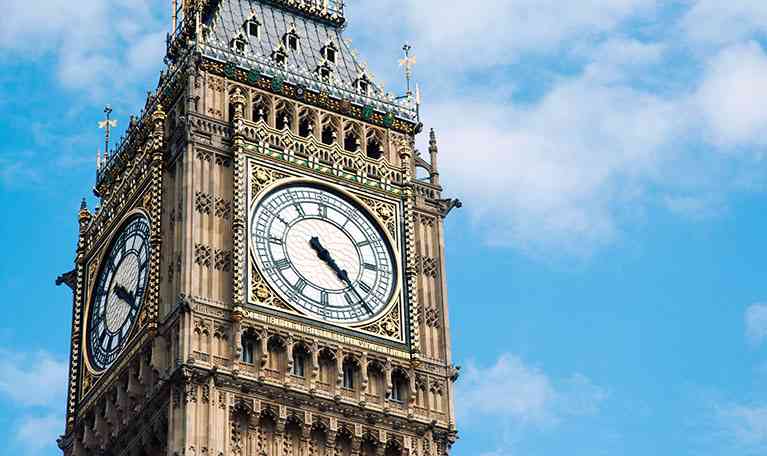Only a few weeks ago it would have appeared that Prime minister May was rolling with the punches and weathering the storm, both relating to Brexit negotiations and the waning support of her own Tory Party.

Politics and the Brexit debacle aside this week saw and a handful of data releases which affected Pound Exchange Rates. Although as has been the case since Brexit and David Cameron’s departure pricing still been driven by Brexit, politics and uncertainty rather than key economic data.
Daggers being drawn on May?
Despite the previous conversation of a united cabinet and Tory party, it would appear that the Conservatives are in complete disarray. Last weekend it was widely publicised that up to forty conservative members of parliament were prepared to sign a letter of no confidence in order to oust Theresa May.
Essentially if eight more Tory MP’s were willing to display their lack of confidence in May a leadership would be triggered. May will, therefore, be hoping for some Christmas cheer over the next few months; but more likely some support from her peers and the beginning of an EU trade agreement.
Boris Johnson enflames Iranian negotiations
We are all aware of the error of Boris Johnson ways, his occasional gaffs and the comedy gold he occasionally provides. Just think back to the rugby game where he poleaxed a small child.
However, in this particular instance, I think very few will look back and smile. His error concerns the circumstances surrounding Nazanin Zaghari-Ratcliffe who was detained in Iran following a holiday where she visited her mother.
When it came to leaving Iran a few weeks later Nazanin Zaghari-Ratcliffe was plucked from security and held. She was not initially charged, however now the mother of one is accused of plotting to topple the regime.
Having now being imprisoned for 19 months Richard Ratcliffe; Nazanin’s husband was encouraged to see that his wife’s plight had been highlighted by Johnson who insisted he would leave no stone unturned.
However, things soon turned south when Johnson stated that the mother of one was in Iran teaching journalism. Leaving the Nazanin facing now facing her the possibility of sentenced being dramatically increased from five to sixteen years.
In the last few days the plot has thickened and although strongly denied by the UK government, a potential historic payment and Zaghari-Ratcliffe’s situation are believed to be linked. It’s thought that dialogue has been started with Iran overpayment of a sum believed around £450m relating to a sum paid for 1,750 Chieftain tanks.
The order was cancelled following the Shah of Iran’s toppling after the order was submitted in the late 70’s. The money has never been returned by the UK government and it is thought that the outstanding debt could be used as a key bargaining chip.
Stalemate on Brexit talks continues
Over the last few weeks, you would have been easily fooled into believing constructive dialogue between the UK’s Brexit committee and the EU’s representatives including Michel Barnier was finally taking place.
Angela Merkel’s key ally Manfred Weber sating that he felt much more optimistic following direct negotiations with Theresa May, with the German MEP saying that the UK Prime minister appeared:
Willing to make a step forward towards Europe so that progress can be made by December.
It would appear regrettably that David Davis doesn’t share Weber’s enthusiasm. The Brexit secretary stating that many of the EU countries remain reluctant to move talks on.
Essentially Davis has been tirelessly championing his desire to discuss a trade deal, with the EU reluctant to move away from the topic of the so-called ‘divorce payment’. The news of further disagreements almost certainly attributing to Pound Exchange rates volatility over the last week.
UK inflation likely to hit the high?
In terms of economic data, the UK saw the release of a number of readings this week. One of the closely anticipated UK economic data releases this week was the year on year CPI figure which had been anticipated to reach 3.1%, the reading, however, fell short reaching 3.0%.
Typically, this would have been viewed as a positive for Pound exchange rates as it is closer to the ideal of 2.0% set by the Bank of England. Yet in this instance pound exchanges rates fell following the release as markets interpreted the lower inflation rate as a negative.
The Bank of England’s primary reason for raising interest rates recently was to curb rising inflation however the question will now be asked as to whether the rate rise was poorly timed or not required at all.
UK retail sales encouraging or discouraging?
Thursday morning brought the release of October’s UK retail sales. The data was expected to demonstrate growth following Septembers data which highlighted a month on month contraction of 0.7% Markets awaited a figure of 0.1% which was surpassed, reaching 0.3%.
Typically, markets would have welcomed the encouraging data however it was unable to make up for previous weak retail data and annual retail sales have weakened for the first year since 2013. The cause undoubtedly lies with higher food and energy prices plus mild weather in recent months which has seen demand for winter clothing slip.
Pound exchange rates movement over the last seven days
Pound exchange rates have been performing summersaults with GBP/EUR moving sharply following both political sentiment and the recent action taken by the Bank of England to curb growing inflationary pressures.
This week has also proved eventful for the GBP/EUR pair. The week high being 1.1297 a rate which was only seen during Asian markets on Monday. Since that opening rate Pound to Euro Exchange rates have slipped to a week low of 1.1102.
Contrarily the GBP to USD has enjoyed incremental gains this week. The majority of gains can be attributed to US Dollar weakness, including rising US unemployment gain which touched 249,000 against a predicted 239,000 and slightly off pace US retail sales.
The trading at a week high 1.3251 and a low of 1.3068.